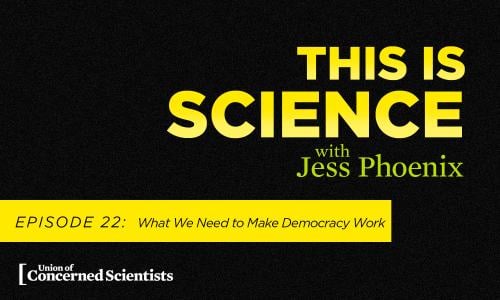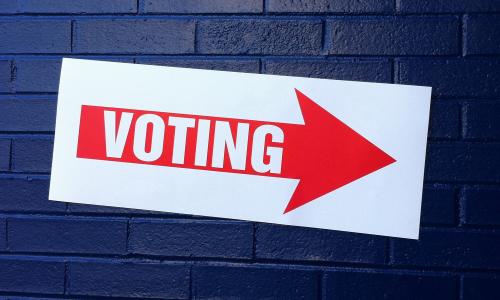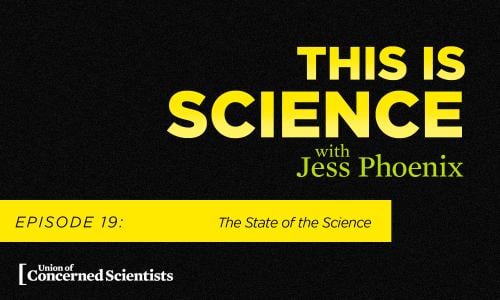In 2020, more than 3.5 million youth reported having used e-cigarettes in the past 30 days. In 2018, the Surgeon General labeled youth e-cigarette use an “epidemic.” The dramatic rise of adolescent “vaping” rates was no accident; rather, it was the calculated result of e-cigarette companies—particularly Juul Labs—catering to youth markets and systematically undermining the federal government’s attempts to regulate the devices.
Like traditional cigarettes, e-cigarettes contain nicotine, an addictive substance particularly harmful to adolescents. While e-cigarettes have health risks of their own beyond nicotine, a notable danger of adolescent vaping is that there is “substantial evidence” that youth e-cigarette use increases the risk of ever using combustible tobacco. The dangers of cigarettes are well known, and the government has poured significant effort into reducing youth smoking, including a 2009 ban on flavored cigarettes due to their appeal to young adults.
In 2015, worried about rising youth e-cigarette use rates, the Food and Drug Administration (FDA) proposed a ban on flavored e-cigarettes, which did not face the same regulation as traditional cigarettes. More than 100 lobbyists and small business advocates met with Obama administration officials to fight the proposal, including a former White House analyst who had worked on the rule the year before. Bowing to pressure, the administration scrapped the ban. Juul, which launched its notably high-nicotine content device in 2015 with a youth-targeted marketing campaign and sold flavors like mango, saw its sales increase seven-fold the year after the ban failed.
In 2018, the federal government began another crackdown. Although FDA commissioner Scott Gottlieb (2017–2019), who once served on the board of a chain of vaping lounges, had taken an initially lenient stance toward e-cigarettes, the FDA became more combative as youth vaping rates continued to rise. Gottlieb was especially concerned that tobacco giant Altria (formerly Philip Morris) had pledged to stop selling e-cigarettes due to their appeal to youth while secretly negotiating a deal to buy a stake in Juul. In a March 2019 meeting, Gottlieb reportedly criticized Juul and Altria executives for lobbying Congress and the White House behind the FDA’s back and told them he “was trying to curb the illegal use by kids of your product and you are fighting me on it.”
With youth vaping still uncontrolled—and a new lung illness later linked to THC-containing e-cigarettes plaguing the country—in September 2019 the FDA proposed a new ban on flavored e-cigarettes. Although Juul had voluntarily discontinued selling most of its flavored products in stores by late 2018, its remaining flavors as well as those of its competitors continued to contribute to adolescent e-cigarette use. Similar to the events four years earlier, however, the FDA’s proposed ban faced an intense lobbying campaign from the vaping industry and conservative groups. One group, Americans for Tax Reform, showed the White House polling data that demonstrated flavor bans would hurt President Trump’s standing in the 2020 election battleground states, while Altria spent more than $10 million lobbying in 2019.
After months of attacks, the proposal was watered down to allow for menthol-flavored reusable e-cigarettes, among other concessions. Due to decades of targeted advertising, menthol cigarettes are particularly popular among Black communities, and allowing menthol-flavored e-cigarettes to remain could allow health inequities to continue. Moreover, teenagers have exploited a loophole allowing flavors in disposable e-cigarettes.
Although Juul and some other e-cigarettes were supposedly conceived of as ways to help smokers quit tobacco, these products were in fact often constructed without such ideas in mind. As one Juul engineer told a reporter in 2015, “we don’t think about addiction a lot because we’re not trying to design a cessation product at all.” “Smoking cessation” is now a multi-billion dollar market, and many e-cigarette companies are owned by the very tobacco giants they supposedly set out to disrupt. As a result of the e-cigarette industry’s growth-at-all-costs tactics, a new generation is now hooked on nicotine and struggling to quit. As former FDA commissioner David Kessler noted in 2019, Juul’s blueprint “could easily have been taken straight out of the tobacco industry’s playbook.”




